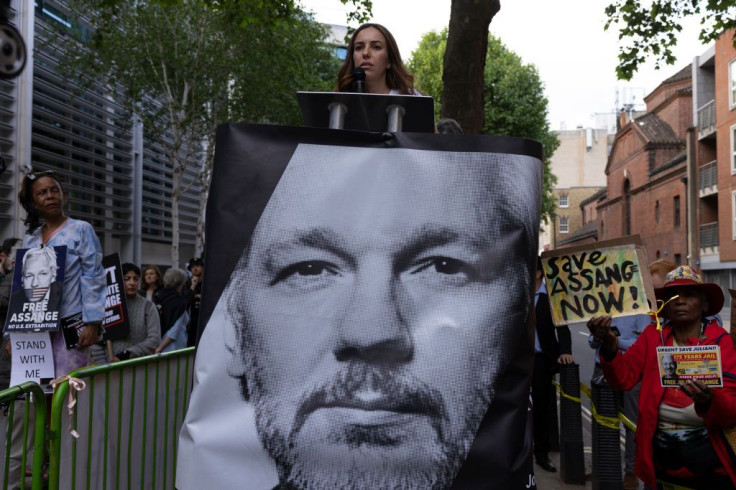
A woman tried to drill her way through a 30ft perimeter wall of a high-security prison in her attempt to free Julian Assange. On May 12, police rushed to the HMP Belmarsh after spotting the female Assange supporter and seized paint bombs along with an axe.
According to The Sun, officers were able to stop the woman who also had a “Jailbreak in Progress” sign in her possession during the incident. Apparently, she had told the staff of her intentions to free Assange. A video on the woman’s group website also captured her spraying “Priti Patel-Save Julian Assange” on the concrete perimeter barrier.
The woman is just one of the hundreds of people supporting WikiLeaks founder Julian Assange. Protesters gathered in front of the British Home Office on Tuesday to call for measures against Assange’s extradition to the United States and face hacking charges. Supporters say the move was politically motivated and poses a grave threat to freedom of press.
“The espionage act has been historically used to suppress American dissidents," Lano Nika, a protester told the Global Times.
Kristinn Hrafnsson, editor-in-chief of WikiLeaks said, "We know that media freedom has been eroding and in a precarious state. It is not in a good condition in our Western part of the world and that needs to be turned around.”
As it is, sources say such stunts by Assange’s supporters are costing thousands on police and prison resources when they should be attending to other relevant matters. In April, after a slew of appeals that was battled over a span of several months, Britain’s Westminister Magistrate’s Court finally issued an order to extradite Assange to the U.S. and face espionage charges.
His case now rests in the hands of British Home Secretary Priti Patel to approve his extradition. His legal team is working on the double with its submissions to Patel to counter his extradition.
A letter from the Council of Europe Commissioner for Human Rights, Dunja Mijatovic called on Patel not to approve Assange’s extradition citing that the indictment by the U.S. against him raised relevant issues about the protection of individuals who publish classified information for the public interest. This, the letter stated, not only limits exposing human rights violations but at the same time could greatly impact media freedom and the existence of democratic public watchdogs whose task is to provide information.

© 2024 Latin Times. All rights reserved. Do not reproduce without permission.





